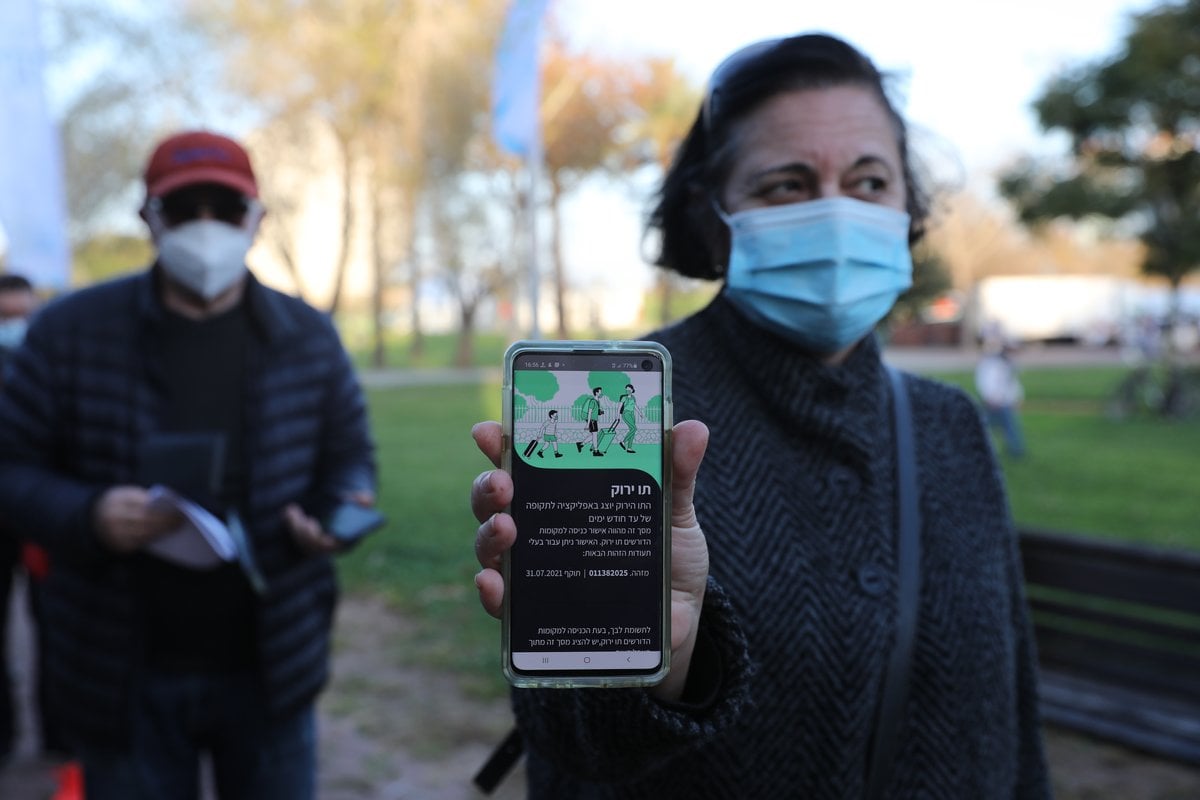
As governments around the world, including Australia, navigate their COVID-19 vaccination programmes, health authorities are watching one with particular interest:
Israel.
The country, which was among the first to begin administering the Pfizer and Astra Zeneca jabs, has managed the fastest vaccine rollout in the world.
Since its programme began on December 19, 2020, at least half of the population has received at least one dose, while 35 per cent have received the full two-dose course.
Israel's case numbers are falling, and as a result, restrictions are easing, offering the rest of us an early glimpse at a post-vaccine world.
A key feature of this 'new normal' in Israel is called a 'Green Pass'. And although other governments are already toying with the idea, it's proving to be rather controversial.
What is the Green Pass? And how does it work?
The Green Pass is a permit issued by the Israeli government's Department of Health that will give holders access to certain venues, including gyms and leisure facilities, and cultural events.
The pass is being issued digitally to people who have had both doses of the Pfizer or Astra Zeneca COVID-19 vaccine, or have recovered from a COVID-19 infection (and will therefore have stronger immunity to the virus).
On Wednesday, for example, dozens of people with Green Passes were able to attend an outdoor concert in Tel Aviv — a novelty after months of public health restrictions.


Top Comments
Agree with others below, though. If you have an actual medical reason for being unable to get the vaccine, you should also get a pass.